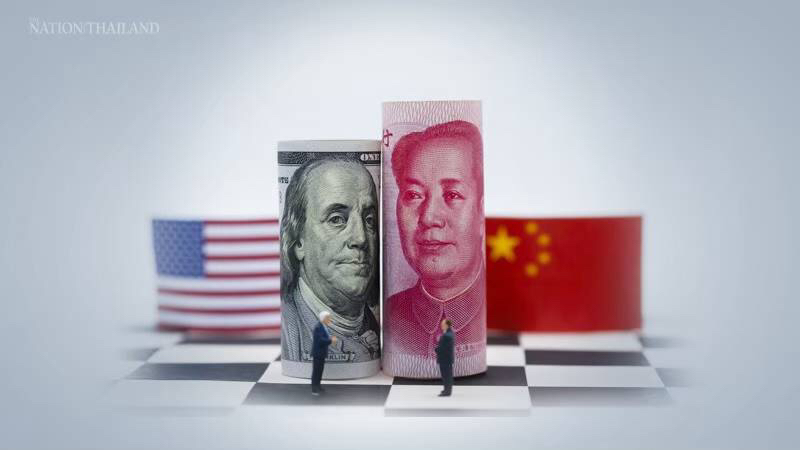U.S. sanctions more Chinese companies for alleged human rights violations in Xinjiang region

The U.S. on Monday announced sanctions against a new group of Chinese companies for involvement in human-rights violations in China's Xinjiang region, accusing them of supporting a "campaign of repression" against Uighurs and other minority groups.
The Commerce Department added 11 companies to an already existing trade blacklist over the alleged Xinjiang violations, bringing to nearly 50 the total number of Chinese entities on the list. The sanctions restrict the companies' access to U.S. technology and other goods.
"Beijing actively promotes the reprehensible practice of forced labor and abusive DNA collection and analysis schemes to repress its citizens," Secretary of Commerce Wilbur Ross said in a statement. "This action will ensure that our goods and technologies are not used in the Chinese Communist Party's despicable offensive against defenseless Muslim minority populations."
In a brief statement, Commerce said nine of the companies were involved in forced labor activities involving Uighurs and other Muslim minority groups. The statement did not elaborate, and Commerce officials didn't respond to a request for further details.
Several of the companies were named in a report this year as running factories that used Xinjiang laborers compelled to work under a forced-labor program led by the government. The Chinese companies, including Changji Esquel Textile, Hefei Meiling and Nanjing Synergy Textiles, are suppliers to a large number of Western companies, according to the report by the Australian Strategic Policy Institute, a think tank founded and partly funded by the Australian government, with additional funding from Raytheon, Lockheed Martin, Northrop Grumman and other companies. None of the Chinese companies could be reached immediately to comment.
Earlier this year, U.S. Customs and Border Protection seized a shipment of hair-weave products from another of the newly sanctioned companies, Hetian Haolin Hair Accessories, saying it had information indicating that the goods were made with the use of forced labor. The Associated Press mentioned that seizure in a subsequent investigation. The company couldn't immediately be reached to comment.
The Commerce Department also sanctioned two companies, Xinjiang Silk Road BGI and Beijing Liuhe BGI, for helping conduct "genetic analyses used to further the repression" of Uighurs and other Muslim minorities. The agency's statement did not give further details.
The companies appear to be subsidiaries of BGI Group, the large genetics company based in Shenzhen, China, that has research and commercial partnerships with many Western universities and companies. In recent months, BGI has been marketing coronavirus testing supplies around the world, including in California, which ultimately rejected the company's overtures.
Matthew Ballard, an outside spokesman for BGI at the public-relations firm BCW Global, said the company was "still evaluating this announcement" by the Commerce Department.
In 2016 and 2017, BGI's co-founder and chairman, Wang Jian, and another top executive struck agreements with Urumqi, the capital of the Xinjiang Uighur Autonomous Region, to build a gene bank and provide genetic testing and other services in the region, according to posts by the Urumqi government and Chinese state media, reported earlier by the Australian Strategic Policy Institute and Axios.
Asked about these agreements last month, BGI said: "The previously signed projects we announced in Xinjiang are all strategic cooperation agreements, and they did not move forward."
"We have never been involved in the collection, storage or analysis of personal genetic information with the potential for or the purpose of violating human rights for special regions or groups," BGI added at the time.
